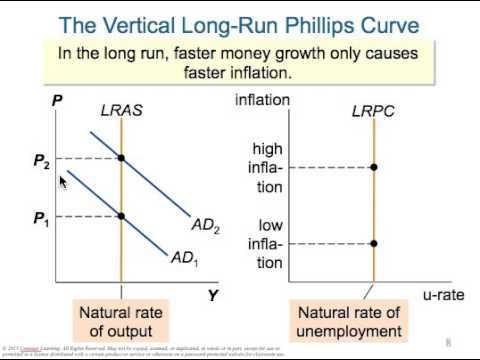For decades, physical activity has been lauded as a cornerstone of good health, a powerful shield against a myriad of diseases, including various forms of cancer. But what if, at the very extremes of human endurance, this health equation introduces an unexpected variable?
- The Unsettling Discovery: Precancerous Polyps in Elite Runners
- A Paradox in Motion: Exercise vs. Extreme Endurance
- The “Runner`s Gut” Hypothesis: A Glimpse into the Mechanism
- Navigating the Nuances: What This Study Doesn`t Say
- Beyond the Finish Line: Practical Advice for Dedicated Athletes
- The Unsung Heroes of Health: A Call for Vigilance
The Unsettling Discovery: Precancerous Polyps in Elite Runners
Recent findings presented at the American Society of Clinical Oncology (ASCO) suggest that for a specific, highly dedicated cohort—ultramarathoners—the path to peak performance might harbor a surprising and somewhat ironic twist concerning colorectal health. The study, focusing on 100 dedicated marathoners and ultramarathoners aged 35 to 50, unveiled a statistic that gives pause: 15% were found to have advanced adenomas—polyps with a significant likelihood of evolving into colorectal cancer. An even larger proportion, 41%, had at least one adenoma. These figures are notably higher than what might be typically observed in the general population within the same age bracket, akin to finding a slight, unexpected crack in the meticulously built foundation of a seemingly perfect structure.
A Paradox in Motion: Exercise vs. Extreme Endurance
Before we collectively abandon our running shoes, it`s crucial to contextualize these findings. This research does not negate the well-established benefits of regular, moderate physical activity in preventing cancer. Indeed, countless studies affirm that a healthy, active lifestyle significantly reduces the risk of various malignancies, including colorectal cancer. The distinction here lies in the intensity and duration of the exercise. We`re talking about the physiological demands of pushing the human body to its absolute limits for hours on end, not a brisk 30-minute jog or a regular gym session.
The “Runner`s Gut” Hypothesis: A Glimpse into the Mechanism
So, why might extreme endurance running present a unique challenge to the colon? One prevailing theory revolves around the gut`s blood supply. During prolonged, high-intensity exercise, the body intelligently redirects blood flow to the working muscles, sometimes at the expense of “non-essential” organs like the intestines. This temporary deprivation of oxygen, coupled with the physical trauma of constant impact and vibration, can lead to what`s often colloquially termed “runner`s colitis”—a condition characterized by abdominal cramps and even gastrointestinal bleeding during or after extreme runs.
The hypothesis suggests that these repeated cycles of ischemic stress (lack of blood flow), inflammation, and subsequent tissue repair might, over time, create an environment conducive to the formation of adenomas in susceptible individuals. It`s a testament to the body`s incredible adaptive capacity, but also a reminder that even “adaptation” can sometimes carry long-term, unforeseen consequences.
Navigating the Nuances: What This Study Doesn`t Say
It`s vital to approach these findings with scientific rigor and avoid alarmist interpretations. This study, while groundbreaking, offers correlations, not definitive causation. It does not prove that ultramarathons directly cause colorectal cancer, nor does it imply a general cancer risk for all runners or those engaging in moderate physical activity. Many young individuals diagnosed with colorectal cancer are not extreme athletes.
Furthermore, the study`s design had inherent limitations:
- No Matched Control Group: The comparison data for adenoma prevalence was drawn from broader population studies, not a perfectly matched group of non-running individuals.
- Indirect Measurements: Researchers relied on observations and self-reported symptoms, rather than directly measuring intestinal blood flow, oxygen levels, or specific inflammatory markers during exercise.
- Unaccounted Variables: Factors such as hydration strategies, dietary habits, use of non-steroidal anti-inflammatory drugs (NSAIDs) common among athletes, and exceptionally low body fat percentages were not explicitly controlled for in this initial presentation.
The researchers also specifically excluded participants with known genetic predispositions or pre-existing intestinal conditions, aiming to isolate the effect on otherwise healthy individuals. This highlights the novelty of the observed patterns and underscores the need for further, more comprehensive investigation.
Beyond the Finish Line: Practical Advice for Dedicated Athletes
While the scientific community continues to unravel the complexities, this research offers crucial practical takeaways for endurance athletes and their healthcare providers:
- Listen to Your Body: Symptoms such as blood in stool, persistent changes in bowel habits, unexplained abdominal pain, or iron-deficiency anemia should never be dismissed as mere “runner`s quirks.” They warrant prompt medical evaluation.
- Consider Early Screening: For young endurance athletes experiencing such symptoms, or those with other risk factors, a discussion with a physician about colorectal cancer screening (like a colonoscopy) might be prudent, even if they fall outside standard age recommendations.
- Balance is Key: The message remains clear: moderate, consistent physical activity is profoundly beneficial for overall health and cancer prevention. Extreme endurance, while impressive, represents a different physiological challenge that may require a more nuanced approach to monitoring and care.
The Unsung Heroes of Health: A Call for Vigilance
The human body is an astonishing machine, capable of feats that inspire awe. Yet, even in our pursuit of peak physical condition, a touch of introspection and scientific curiosity serves us well. This study isn`t a condemnation of endurance sports but a valuable prompt for athletes and medical professionals alike to look deeper, acknowledge potential edge-case risks, and ensure that the quest for physical excellence doesn`t inadvertently overlook critical aspects of long-term health. Perhaps the true marathon is not just on the track, but in the ongoing journey of understanding and caring for our bodies.









